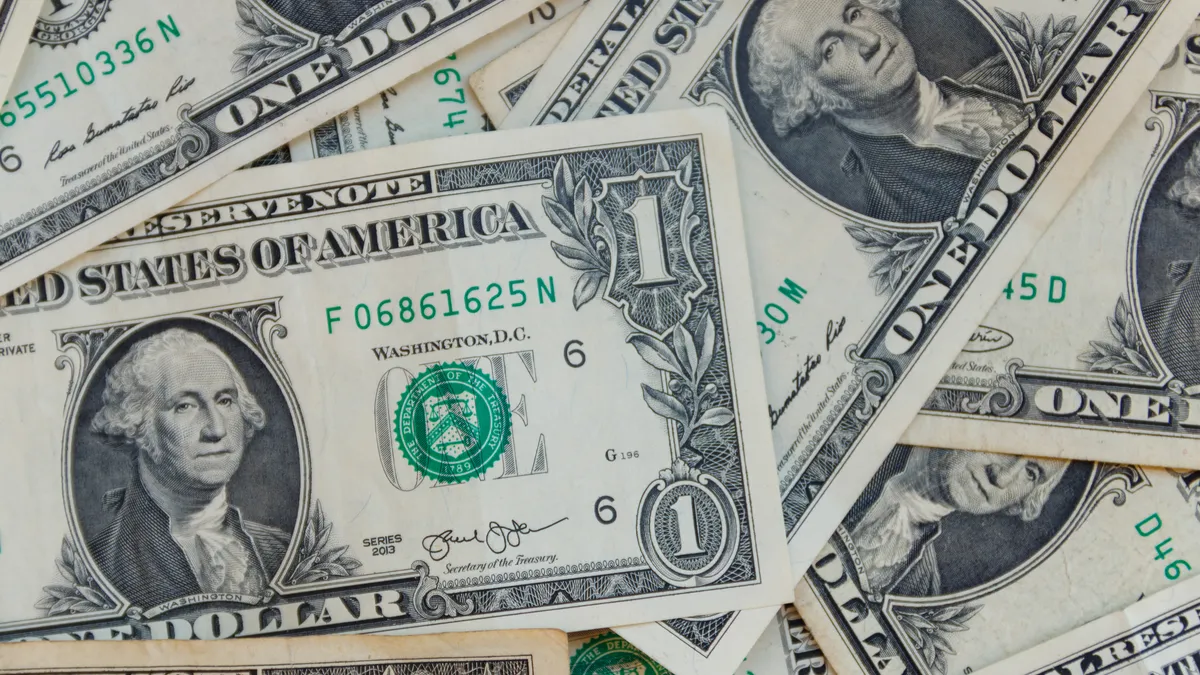Dive Brief:
- Democrats on the Senate Banking Committee scrutinized banks' charging of overdraft fees during a hearing Wednesday, asserting the charges have a disproportionate impact on working-class and nonwhite families.
- Republican lawmakers and industry representatives countered that many customers rely on overdraft for short-term credit, and that recent voluntary decisions by certain banks to scrap overdraft fees prove lawmakers need not target the practice.
- In joint letters published Wednesday before the hearing, Sen. Elizabeth Warren, D-MA, and two other lawmakers asked the CEOs of JPMorgan Chase, Bank of America and Wells Fargo why they continue to charge overdraft fees.
Dive Insight:
As many large banks pivot away from overdraft fees, Democratic lawmakers continue to castigate the industry holdouts they argue squeeze the country’s most vulnerable consumers through punitive fee-based models.
“We know these types of fees affect people of color at a disproportionate rate,” said Sen. Raphael Warnock, D-GA, who chaired the hearing of the subcommittee on financial institutions and consumer protection. “Studies have found that on average, banks with branches in predominantly Black neighborhoods charge more for overdraft services. In addition, customers who overdraft the most throughout the year tend to have lower income, poor credit scores, and are disproportionately Black or Hispanic.”
Research by the Consumer Financial Protection Bureau (CFPB) shows that less than 9% of consumer accounts pay nearly 80% of all overdraft revenue.
Republicans and industry representatives countered that overdraft poses a valuable service to many Americans.
“The data shows that greater than 60% of all overdrafts occur when consumers intentionally utilize the service,” said Sen. Thom Tillis, R-NC. “Comments by some insinuating that financial institutions trap unaware customers in these products, when consumers are presented with opt-in provisions from the start and subsequent notifications explaining they can terminate the services at any time, seem to be unfounded.”
David Pommerehn, general counsel of the Consumer Bankers Association, urged lawmakers to suggest alternatives to overdraft fees, such as small-dollar loans, for consumers with short-term cash flow options.
Warren, for one, has long been outspoken in her distaste for overdraft fees. Calling JPMorgan CEO Jamie Dimon “the star of the overdraft show” during a hearing last May, Warren challenged Dimon to commit to refunding the $1.5 billion she said the bank collected in overdraft fees during the pandemic. Dimon would not.
In Wednesday's letter, Warren asked Dimon how much the bank has charged customers in overdraft fees since it announced changes to its overdraft policies. She also asked how customers are informed of their opportunity to opt out of overdraft, if there is a waiting period before overdraft protection kicks in, and if there are limits to the number of overdraft charges a customer can accrue. Sen. Cory Booker, D-NJ, and Rep. Carolyn Maloney, D-NY, also signed the letter. Maloney has introduced the Overdraft Protection Act every Congress since 2009.
The lawmakers made similar requests for information to Bank of America and Wells Fargo — the former pledged in January to trim its overdraft fee from $35 to $10; the latter said it would eliminate non-sufficient funds fees and institute a 24-hour overdraft grace period.
“If Citibank and Capital One can eliminate overdraft fees, so can Chase and BofA and Wells,” Warren said during the hearing, name-dropping two of the 10 largest U.S. banks. Capital One announced in December it would jettison the fees; Citi did the same in February.
Warren asked Aaron Klein, a senior fellow at the Brookings Institution and witness at Wednesday's hearing, how much money Bank of America, Wells Fargo and JPMorgan Chase were making in fee revenue per year.
“They’re making billions,” Klein said. “In 2019, before the pandemic, JPMorgan Chase earned over $2 billion in overdraft fees, Wells Fargo about 1.7, and Bank of America a bit over 1.5."











